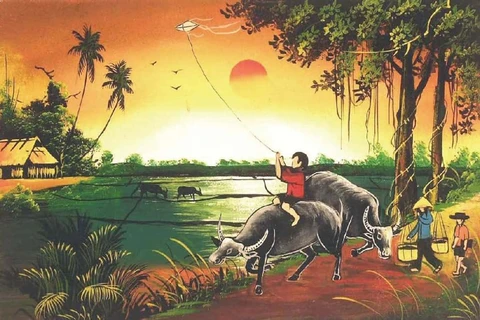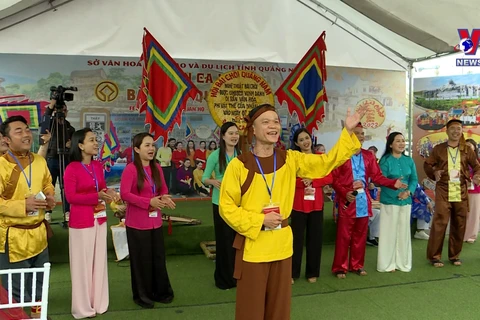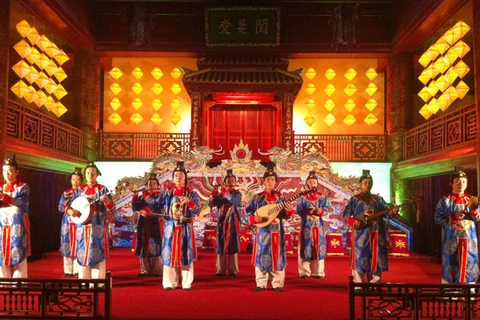 A performance of Quan ho (love duet) singing, one of Vietnam's UNESCO intangible cultural heritage of humanity (Photo: VNA)
A performance of Quan ho (love duet) singing, one of Vietnam's UNESCO intangible cultural heritage of humanity (Photo: VNA) On September 20, 2005, Vietnam joined the convention, becoming one of its first 30 official members. The Southeast Asian nation is currently home to 15 intangible heritage items recognised by the United Nations Educational, Scientific and Cultural Organization (UNESCO). The heritages, owned by different ethnic groups, are located in many provinces and cities nationwide.
According to the Cultural Heritage Department under the Ministry of Culture, Sports and Tourism, in line with Vietnam's commitments to UNESCO, projects on the conservation and promotion of these intangible cultural heritages have been either already in place or under development.
A prominent example, demonstrating Vietnam’s dedication to heritage conservation over the past years, is the case of Xoan singing (a type of traditional art performed during rituals and celebrations) in the northern province of Phu Tho. On December 24, 2011, the art form was officially listed among UNESCO Intangible Cultural Heritage in Need of Urgent Safeguarding. In 2015, Phu Tho made Xoan singing a specific tourism product in its tourism development project for 2015-2020. In 2017, the art form was added to the Representative List of the Intangible Cultural Heritage of Humanity, marking the first time that UNESCO committee has decided to pull a heritage out of the list of those in need of urgent protection and transfer it to the representative list.
After its first term of 2006-2010 at the Intergovernmental Committee for the Safeguarding of Intangible Cultural Heritage which ended with success, on July 6 last year, Vietnam was elected to the committee for the 2022-2026 term, with 120 votes – the highest among the elected countries. The committee, consisting of 24 members, aims to promote the objectives of the Convention, provide guidance on best practices, and make recommendations on measures for the safeguarding of the intangible cultural heritage.
According to Ambassador Le Thi Hong Van, Head of the Permanent Delegation of Vietnam to UNESCO, winning the election for the second time is of great significance in many aspects, showing the country's increasing position and prestige in the international arena, as well as the international community’s confidence in its contribution to and administration capacity in the global multilateral institutions, and recognition of Vietnam's contributions in relations with UNESCO, in preserving and promoting the value of intangible heritage in the country and in the world. It is also a result of Vietnam's foreign policy of multilateralisation, diversification and comprehensive and extensive international integration, as well as the fruit of a methodical and concerted implementation of its candidacy plan in recent years.
The 20th anniversary of the 2003 Convention will be marked with a ceremony on the occasion of the Hung Kings Temple Festival in the northern province of Phu Tho at the end of April, which is part of a plan of actions of Vietnam as a member of the Intergovernmental Committee for the Safeguarding of Intangible Cultural Heritage.
In addition, an Intangible Cultural Heritage Performance Festival will take place in Viet Tri City, Phu Tho province, from April 21 to 24, during which artisans from 13 cities and provinces nationwide will perform 15 UNESCO-recognised cultural heritage genres to the public./.
In addition, an Intangible Cultural Heritage Performance Festival will take place in Viet Tri City, Phu Tho province, from April 21 to 24, during which artisans from 13 cities and provinces nationwide will perform 15 UNESCO-recognised cultural heritage genres to the public./.
VNA

























